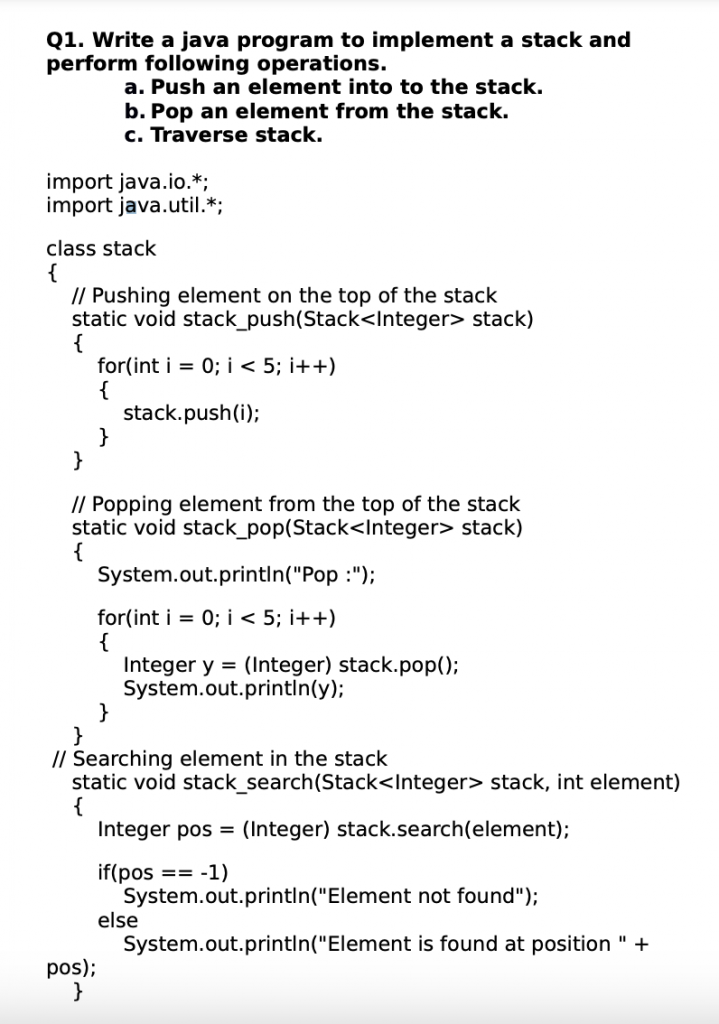Advance Java Questions with Programs
Summary:
The first program demonstrates the implementation of a stack data structure in Java. A stack is a fundamental data structure that follows the Last-In-First-Out (LIFO) principle. In this program, key stack operations are showcased. The ‘push’ operation inserts elements onto the top of the stack, while ‘pop’ removes elements from the top. Additionally, the program illustrates how to traverse the stack, which involves accessing and displaying the elements in the stack. These operations are fundamental in data structure manipulation and are widely used in programming.
Program two takes a deeper dive into Abstract Data Types (ADTs) by implementing a matrix ADT using a class. Matrices are crucial in various mathematical and engineering applications. This program allows users to read, print, add, subtract, and multiply matrices. The matrix class encapsulates these operations, promoting code modularity and reusability. Such ADTs are essential for organizing and processing complex data structures efficiently.
In program three, multi-threading is introduced, showcasing the concurrent execution of tasks. It involves creating two threads, each assigned a different job. Thread synchronization ensures that one thread does not terminate before the other completes its task. Multi-threading is a critical concept in modern software development, enabling applications to execute multiple tasks simultaneously, enhancing performance and responsiveness.
Collectively, these programs emphasize fundamental Java programming skills.
Excerpt:
Advance Java Questions with Programs
Q1. Write a Java program to implement a stack and
perform following operations.
a. Push an element into to the stack.
b. Pop an element from the stack.
c. Traverse stack.
import java.io.*;
import java.util.*;
class stack
{
// Pushing element on the top of the stack
static void stack_push(Stack<Integer> stack)
{
for(int i = 0; i < 5; i++)
{
stack.push(i);
}
}
// Popping element from the top of the stack
static void stack_pop(Stack<Integer> stack)
{
System.out.println(“Pop :”);
for(int i = 0; i < 5; i++)
{
Integer y = (Integer) stack.pop();
System.out.println(y);
}
}
// Searching element in the stack
static void stack_search(Stack<Integer> stack, int element)
{
Integer pos = (Integer) stack.search(element);
if(pos == -1)
System.out.println(“Element not found”);
else
System.out.println(“Element is found at position ” +
pos);
}
1
public static void main (String[] args)
{
Stack<Integer> stack = new Stack<Integer>();
stack_push(stack);
stack_pop(stack);
stack_push(stack);
stack_search(stack, 2);
stack_search(stack, 6);
}
}


Reviews